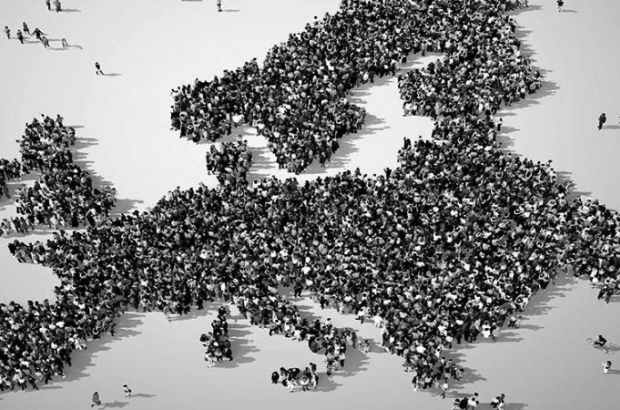AGM 2019: Europe, knowledge politics and bureaucracy: anthropological perspectives

The next EASA AGM and Seminar will take place on 28th and 29th October in Brussels at the Université Libre de Bruxelles, Laboratoire d'Anthropologie des Mondes Contemporains.
The seminar will focus on the Anthropology of Bureaucracy/Policy and it will be an opportunity to reflect and discuss from an anthropological point of view the dynamics and processes that take place within European institutions in Brussels. Angela Liberatore, head of ERC Social Sciences will participate in the the seminar and share her experiences with us.
There is a call for contributions (Deadline 20th September 2019)
The 2019 EASA AGM invites papers from all current or potential EASA members on any aspect of the governance and knowledge politics of the EU and other European research, and/or its implications both for anthropological knowledge production and for the future of Social Anthropology across Europe and beyond.
As part of the upcoming 30th anniversary of our association in 2020, the main aim of the 2019 EASA workshop is to initiate a conversation to critically assess how European Union (EU) institutions have intervened in, and helped to shape, both research practices and research results in Europe within the last thirty years. Drawing on anthropological approaches, the workshop will take advantage of being held in Brussels in order to bring policy makers of the European Commission and funding agencies implied in the EU policy on research to the table. The intention is to provide a two-way street: presentations by anthropologists on their understanding of the EU’s research agenda and its implementation, and commentaries from policy makers about what they were hoping to achieve. This will be an opportunity for anthropologists to engage with the institutions that have provided both much of the funding and the policies that have shaped academic research in Europe, for good or for bad.
Background
The €94 billion budget for Horizon Europe agreed in April 2019 is the latest step in the European Union’s ambitious vision to shape the governance of global science. The EU’s research and development framework programmes began in the early 1980s, and have grown steadily in complexity, reshaping disciplinary research agendas by promoting large-scale international collaborations and interdisciplinary research networks. The European Association of Social Anthropologists (EASA), founded in 1989, has sought to promote anthropology in Europe within this research governance landscape. Thirty years on, the EU’s cosmopolitan vision for Open Science continues, turning the Commission from a funder into a key policy actor, driving open access policies with Plan S and building research frameworks through the European Research Council (ERC).
Of course, the EU is a political entity by definition, and so it is not a neutral actor. The policies informing research funding have attracted considerable criticism, as have the EU’s research themes, which many regard as being overly EU-/Euro-centric. In addition, EU funding schemes have been widely criticised for creating hierarchies between old and new member states, and between the natural sciences (highly favoured) and social sciences/humanities (much less favoured). More recently, EU project culture has also been identified as being one mechanism that has led to the casualisation of academic work.
Against this background, this workshop will explore both the positive and negative implications of EU-ropean knowledge politics, both for the kinds of knowledge generated, and for the future of anthropology and the critical social sciences.
This theme continues the 2017 Bern EASA seminar that focused on Politics and Precarities in Academia. In that meeting, the focus was squarely on the way that academic precarity was generated, which examined both the internal and external elements involved in that process, as well as its historical and geographical contingencies. This meeting will bring together researchers (including ERC grantees), officers from the Unit of Social Sciences and Humanities at the European Research Council Executive Agency, and from the Directorate General Research for Research and Innovation, in the European Commission.
We call for papers that will address topics of one out of three of our workshops:
1) Bordering Europe through funding
European funding schemes have increasingly shaped anthropology in Europe. This workshop will focus on how research funding for anthropology in EU-rope both shapes and works to redefine both new and old borders and the hierarchies between the differences that the borders represent.
2) Cooperation of anthropologists with EU institutions and bureaucracies
How do anthropologists and social scientists cooperate with EU and nation-level bureaucracies when it comes to funding - where does the power lie, is there a real dialogue, what are the difficulties? The workshop addresses two topics at once: both how anthropology can shed light on this process, and whether anthropological voices are heard in the shaping of EU administration.
3) EASA: (re)making anthropology in Europe, 30 years on
We wish to use this session to recognise/celebrate/reflect on the way that EASA itself has remade anthropology in Europe (including the positives of creating a shared community, the challenge this has presented to older models of ethnology, and the internal disciplinary politics of language and theoretical capital, i.e. which panels get included in conferences, the critique of anglocentricism etc.
Applicants should email a title and 200-word abstract (of your proposed contribution) to agm(at)easaonline.org no later than 20th September 2019.
EASA members are especially encouraged to apply. Applicants whose papers have been accepted and who do not have sufficient means to attend will be provided with support, subject to funding availability.
We're looking forward to meeting you in Brussels.






